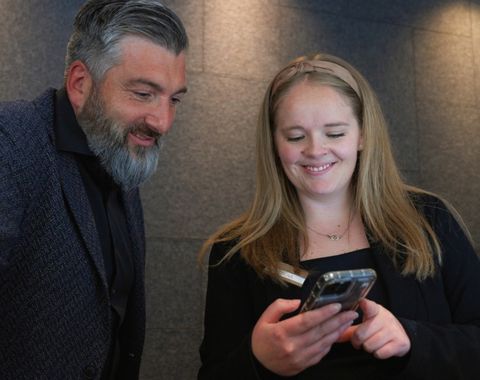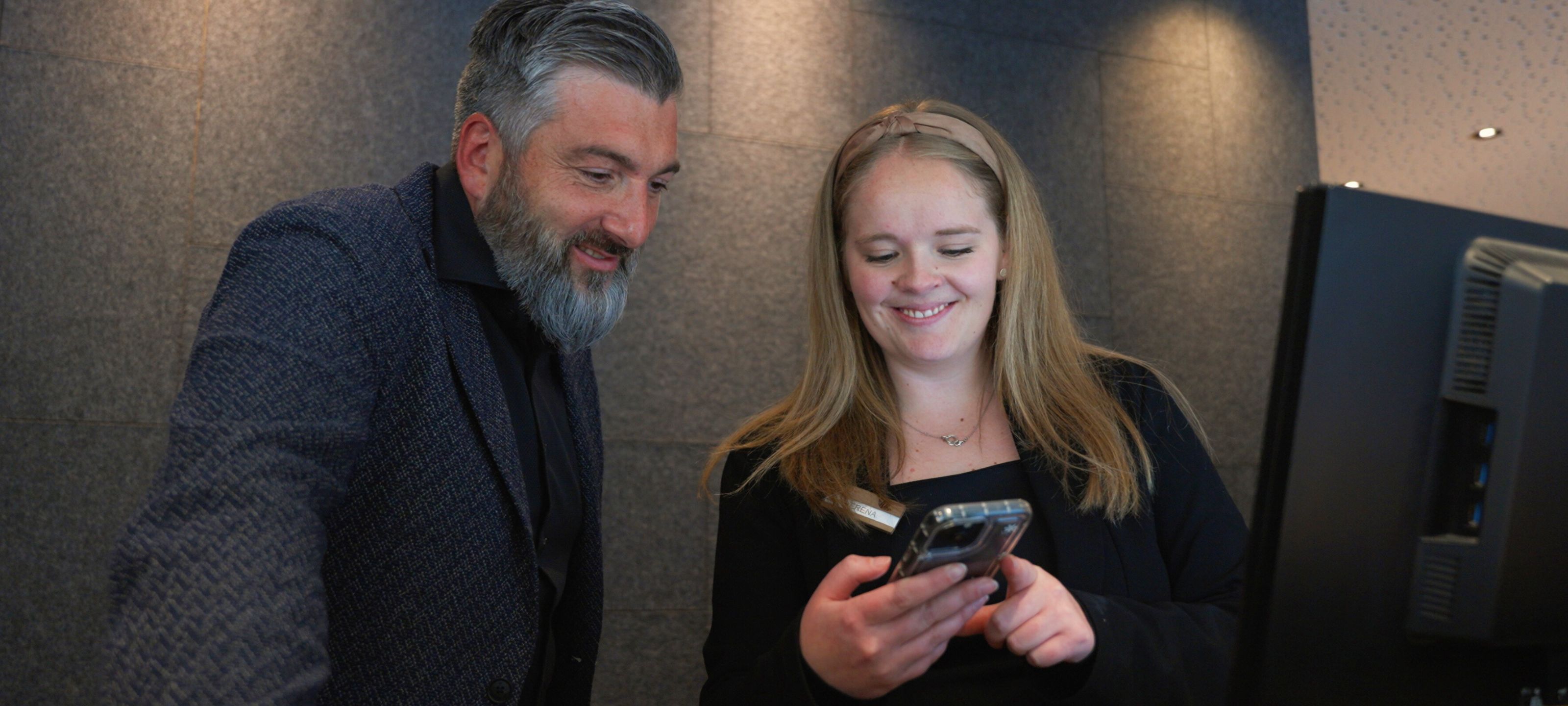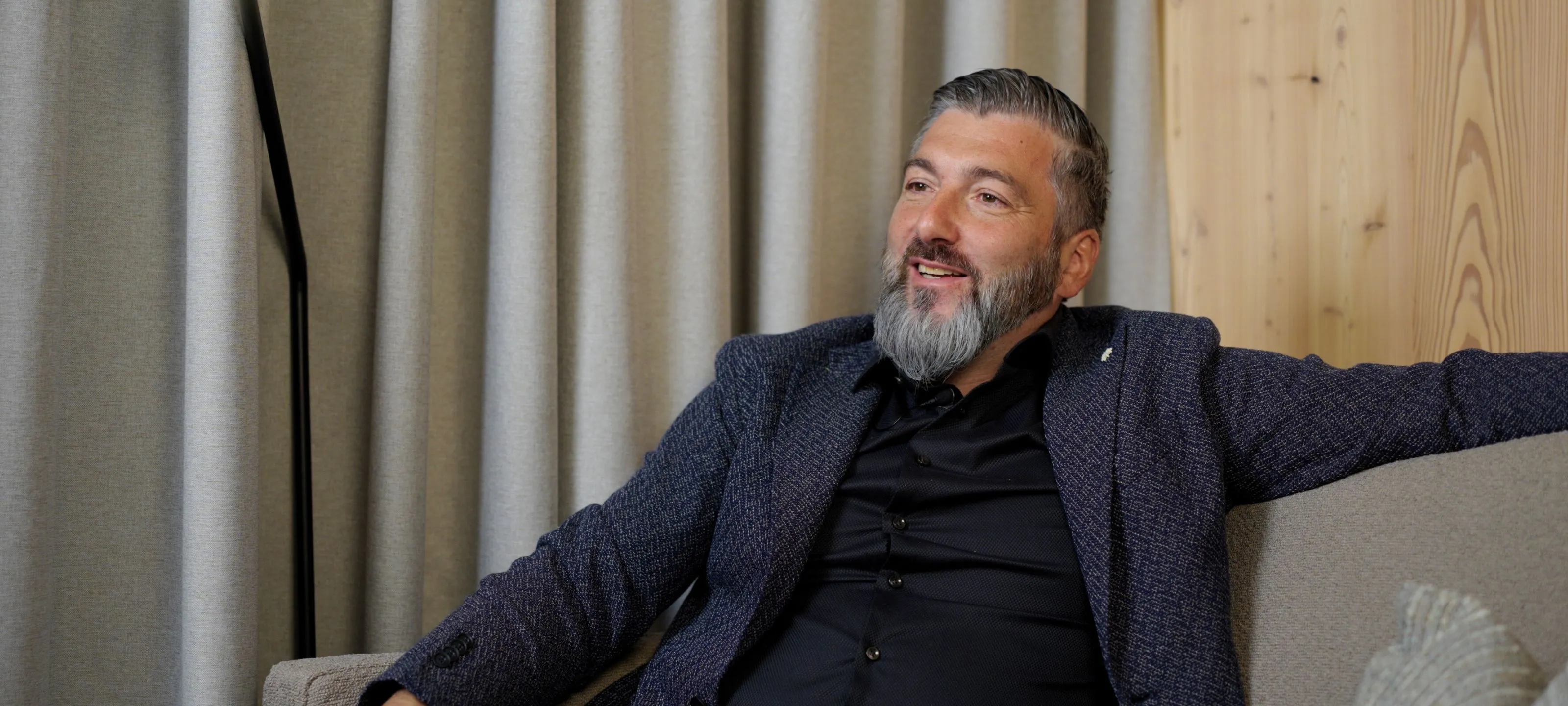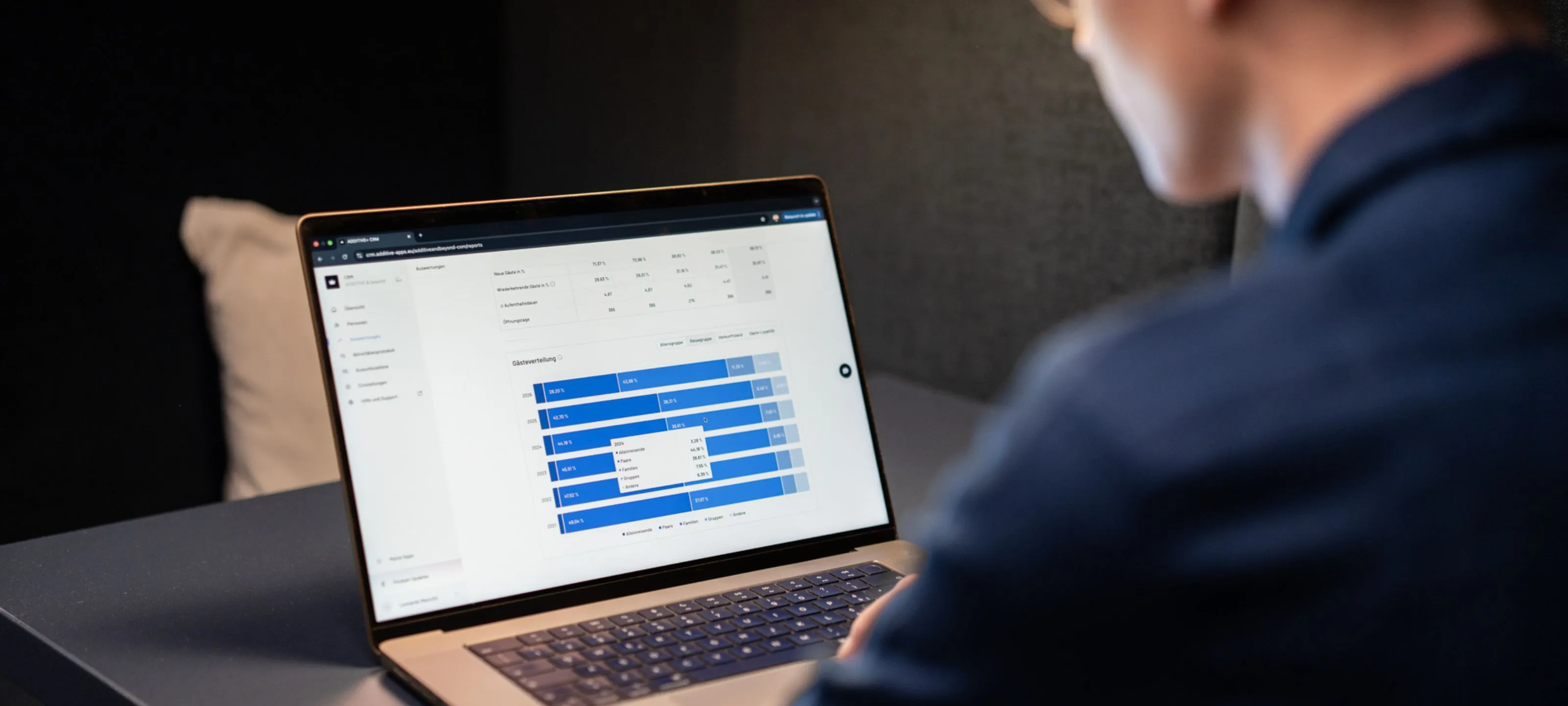.webp)
8 Trends in Online Marketing: How Hotels Can Use Them to Their Advantage

Discover the latest trends in online marketing and learn how to leverage them specifically for your hotel to gain a competitive edge and attract more guests.
8 Hotel Marketing Trends to Boost Bookings
With digitization and new technology trends, marketing is changing. Adjustments in strategy are necessary for hotels to compete and attract and retain guests. Not all forms of marketing are new, but they are becoming increasingly important, especially in the hotel industry.
The new trends in hotel marketing help tourism companies generate more reservations and increase their revenue. This is because all marketing activities influence whether and how a potential guest becomes aware of the hotel, becomes interested in it, and ultimately decides to make a booking. They therefore accompany the guest throughout the entire customer journey.
To meet guest expectations and make the most of technology, hotels would do well to consider the latest trends in hotel marketing and online marketing for hotels. The following eight trends highlight the innovation potential for hotels and illustrate how they can improve their online hotel marketing with concrete examples.
1. Experience Matters Customer Experience Marketing for Hotels
Guests don't buy products or services, they buy experiences. Therefore, marketing must emphasize the elements that make a hotel stay a unique experience. Whether it is superior service, special features in the hotel rooms that significantly increase comfort, or other offerings that stand out to the guest.However, customer experience marketing does not only mean to focus on experiences in terms of content marketing, but also to make the interaction with the hotel an experience before, during and after the trip. From the confirmation email with hiking tips to whet the appetite for the vacation, to the video message from the hosts after the trip asking for positive reviews on the booking portals.
2. Searched and Booked: Hotel Marketing with Voice Search
The use of digital voice assistants is growing rapidly; after all, they are extremely convenient to use. If hotels prepare their content and information accordingly, they enable their guests to conveniently book a stay by voice.There are also many onsite use cases for voice search. Guests can use it in their hotel room to get information about their stay, such as the weather or things to do in the area. They can also use it to book complementary hotel services, such as spa treatments. This actively promotes cross-selling at the hotel and increases incremental revenue.
3. Answering Every Question: Hotel Chatbots
Chatbots are now widely used on the websites of a wide range of companies. Hotels still rarely use them to communicate with guests, but the benefits are numerous:Specific questions from guests are answered quickly and effortlessly - regardless of language and even when the front desk is unstaffed.Marketing messages can be effectively placed as part of a hotel's online marketing efforts.Prospective guests are guided through the booking process on the website, and the bot can eliminate doubts and point out benefits, thus reducing the bounce rate.Direct bookings are promoted through the service on the hotel's own website.
4. Score with Emotional Messages: Video Marketing in Tourism
The combination of visual and auditory content makes video marketing particularly successful because it provides the guest with emotional messages that stay in the memory, especially during the inspiration phase. Videos are particularly popular on social media platforms, but can also be distributed via newsletters and other channels through online hotel marketing. The key is to choose the right format for each channel. While short videos with music are suitable for TikTok, live formats are popular on Instagram.
.webp)
5. Leverage the Authenticity of Guests: User Generated Content
The concept of user-generated content is no longer a novelty in marketing, yet there is often untapped potential for hotels to strengthen this type of marketing to increase credibility and awareness. Opportunities include
- Implementing hotel-specific hashtags on social media channels
- Actively solicit reviews from guests
- Enable comments, e.g. on the hotel's own blog
Intelligent Marketing with Automation Software:
The success of Alpin Panorama Hotel Hubertus

- How the hotel got 350 additional reservations
- Invest €1, generate over €51
- Make reservations predictably
- Practical tips for marketing automation in hotels
6. With a Personal Touch: Personalized Hotel Marketing
The name of the (potential) guest plays a special role in attracting attention and increasing the likelihood of booking. People like to hear and read their own name. That's why it's worthwhile for hotels to use existing guest data and send personalized e-mail campaigns, for example. This includes not only the use of the name in the salutation, but also all other data such as interests (e.g. hiking, wellness or culinary) and booking behavior (e.g. season, pre-booking time and length of stay) are suitable for targeted marketing in the area of online hotel marketing.
7. Remarketing from First Contact to Booking
The (potential) guest needs several touchpoints before he or she decides to make a booking. A single ad on Facebook is usually not enough. For this reason, hotels use remarketing to track user behavior (e.g., visits to the hotel's website) and reach the potential guest on multiple channels with the appropriate message. In this way, the hotel is present and relevant in the guest's mind at the crucial moment of booking. For more information on remarketing for hotels, please read "Remarketing - the right message at the right time to the right guest".
8. Essential for the Future: Marketing Automation Specifically for Hotels
With the wealth of guest data available (from demographics and interests to usage and booking behavior), marketing activities or online marketing for hotels can become more targeted and efficient. The better the message, format, channel and timing match the (potential) guest, the greater the success, i.e. the likelihood of a booking.This can no longer be done manually by marketing managers or front desk staff due to the time and complexity involved. The solution is a software program that uses the data to trigger marketing activities such as mailings and ads in social networks. In this way, hotels can generate significant additional revenue without disrupting their day-to-day operations. To learn more about the success of ADDITIVE+ MARKETING AUTOMATION, the first marketing automation software designed specifically for the hotel industry, download the free Panorama Alpin Hotel Hubertus case study.
For more information about the Software, ADDITIVE is available with a no-obligation initial consultation:





.webp)

.jpg)

.jpg)



.webp)
